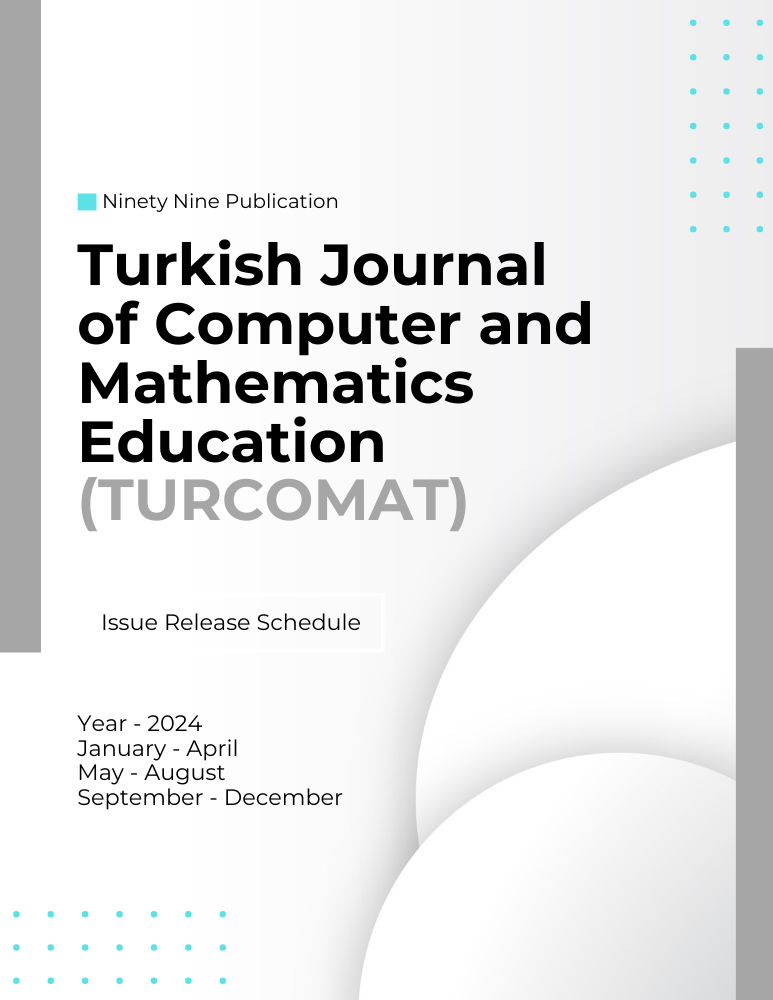Turkish Journal of Computer and Mathematics Education (TURCOMAT) ISSN: 3048-4855
Period Tri-annual | Starting Year: 2009 |Format: Online | Language: ENGLISH | ISSN : 3048-4855 | Publisher: NINETY NINE PUBLICATION

Citation Analysis:
Google Scholar
Citations: 24413
h-index: 61
i10 -index: 656
- First response within 24-48 hours
- Preliminary Review - within 1 week
- average days of acceptance notification to 4-6 weeks
- Acceptance to publication: within 1-2 weeks
Announcement:We are excited to announce that Turkish Journal of Computer and Mathematics Education (TURCOMAT) is now under the new management of Ninety Nine Publication, effective since November 2023. We are proud to launch our first issue with the new team, Volume 15, Issue 1, for the year 2024. This issue marks a new chapter in the journal's history and is now available on our website. For detailed information and to access the latest issue, please visit our journal's website
The Turkish Journal of Computer and Mathematics Education, known as TURCOMAT, is a globally acknowledged journal notable for its comprehensive peer-review process and open access availability. This journal publishes three issues a year, in the periods of January-April, May-August, and September-December. TURCOMAT primarily focuses on sharing scholarly research in the fields of mathematics education and computer science. For more detailed insights into its areas of interest, readers are encouraged to refer to the journal's focus and scope section.
Call for Papers: January to April 2025 Issue of TURCOMAT
- Submission Deadline: April 30, 2025
- Publication Model: Continuous
- Scope: Encourages exchange of ideas in mathematics and computer science, covering both theoretical and applied research.
- Focus Areas: Mathematical theories, computational algorithms, data science, and their applications in various domains.
- Submission Encouragement: Innovative, interdisciplinary research and comprehensive reviews contributing to mathematical and computational sciences.
- Journal Characteristics: International, scholarly, refereed, and editor-organized.
- TURCOMAT's Evolution: Dynamic, adapting to changes and developments in the field.
- Participation Invitation: Enthusiastic call for manuscripts for future issues, highlighting enjoyment in engaging with new authors and their research.
Current Issue
Vol. 17 No. 01 (2026): Vol. 17 No. 1 (2026)
Published: 2026-01-07